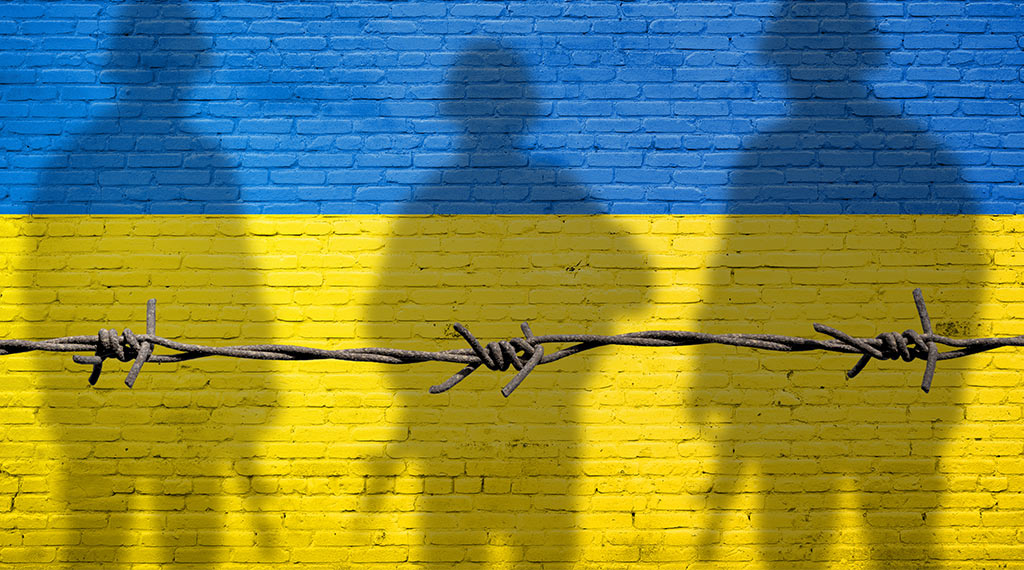Sorting out the Ukraine mess?

Ukraine and Russia are slugging it out, with heavy losses on both sides.
The courageous leader of Ukraine, Volodymyr Zelensky, faces some harsh choices. But so does Vladimir Putin, President of Russia. Russia has taken many casualties, with more than 5,000 soldiers killed already. The Russian currency has all but collapsed and there is deep-seated anger in Russia against Putin and his war. Putin needs to wrap this war up fast, or he could be replaced by his adversaries in Russia.
Both Russia and Ukraine have asked for security guarantees –from NATO. Sorting out the NATO relationship is all important.
If a deal is possible (it may not be), what would it entail?
A solution covers four main issues. The first is the future of the Donbass area; the second is NATO membership for Ukraine; the third is the Crimea; and the fourth involves nuclear weapons.
Perhaps the easiest solution is Donbass, which the Minsk Accords saw as becoming autonomous regions of Ukraine. Since Russia has now recognized the two breakaway areas (Donetsk and Luhansk) as independent states, it is more difficult now to find a way to a solution. Nevertheless, it is possible. One formula would be for the two breakaways to remain independent only while their status as autonomous Ukrainian areas is worked out, at which point it would be politically and economically expedient for them to become autonomous parts of Ukraine.
NATO, however, is a bigger issue for the Russians and for Ukraine. Ukraine believes, rightly or wrongly, that NATO guarantees their security (even though the support they have received from NATO has not achieved that goal at all). Russia believes NATO in Ukraine is a major threat to Russian security. How to solve this problem?
The simplest but more difficult way to handle the matter is for Ukraine to give up seeking membership in NATO. Even in the midst of a horrible war, Ukraine does not seem disposed to do this, and NATO has not backed off either. Is there a way out?
A straightforward solution is for NATO to give Ukraine a special type of membership whereby NATO would come to Ukraine’s help if it is attacked. But to assuage Russia, NATO would not put any troops in Ukraine nor any NATO bases, and would not try to convert Ukraine’s military infrastructure into the NATO system. NATO, of course, is not directly part of the Russia-Ukraine negotiations, but some sort of formula can be agreed (no NATO bases, infrastructure etc) in Ukraine, leaving aside Ukraine asking for special status under Article 5 (collective security) in the NATO treaty.
The most sensitive issue involves nuclear weapons and Ukraine. Officially Ukraine has to renounce building and deploying nuclear weapons it may develop, but even more importantly Ukraine would need to agree to not permit other nations (NATO or otherwise) to put nuclear weapons on Ukrainian soil. Such an agreement appears crucial to Russia, which declares it is concerned about a nuclear threat coming from Ukraine.
Finally there is the Crimea issue. One doubts this can be resolved in these negotiations, especially since Russia has annexed Crimea. There could be solutions, such as a hybrid arrangement with Ukraine, but the Russians are unlikely to want to discuss Crimea in any negotiations at this time. In any case, solving the Crimea problem is not urgent at present.
Beyond striking a deal between Ukraine and Russia, there is the even more serious matter of working out a revised model for European security. This involves the deployment of forces on all sides, nuclear weapons, and arms control as well as security guarantees that are lacking in the post-Soviet European area. A responsible role for the US, which is the main guarantor of security in Europe, and Russia, is needed, but relations have badly deteriorated and it will be hard and difficult trying to work out a new security framework with Russia. Even so, mature and responsible leaders ought to be able to find a way forward.
European leaders, especially Emmanuel Macron of France, have tried to find a way forward, which is more than can be said of Joe Biden, who has tried to exploit the Ukraine mess for domestic political reasons. Instead of Macron visiting Putin, maybe he should stop off in Washington and see if he can turn around thinking in the White House.
- Trump and Ukraine: what Russia wants, what Trump could do - November 8, 2024
- North Korean troops in Kursk could backfire on Moscow, Pyongyang - November 1, 2024
- Secure enclaves: bad CHIPS Act idea wasting billions - August 12, 2024
